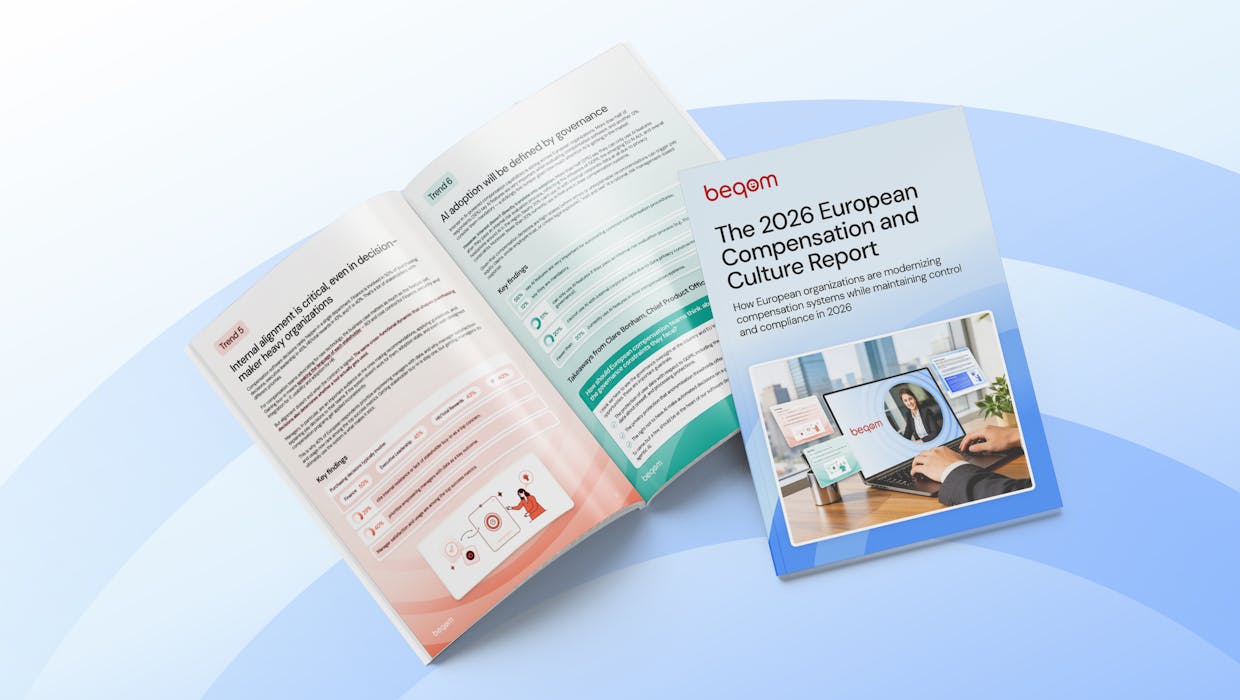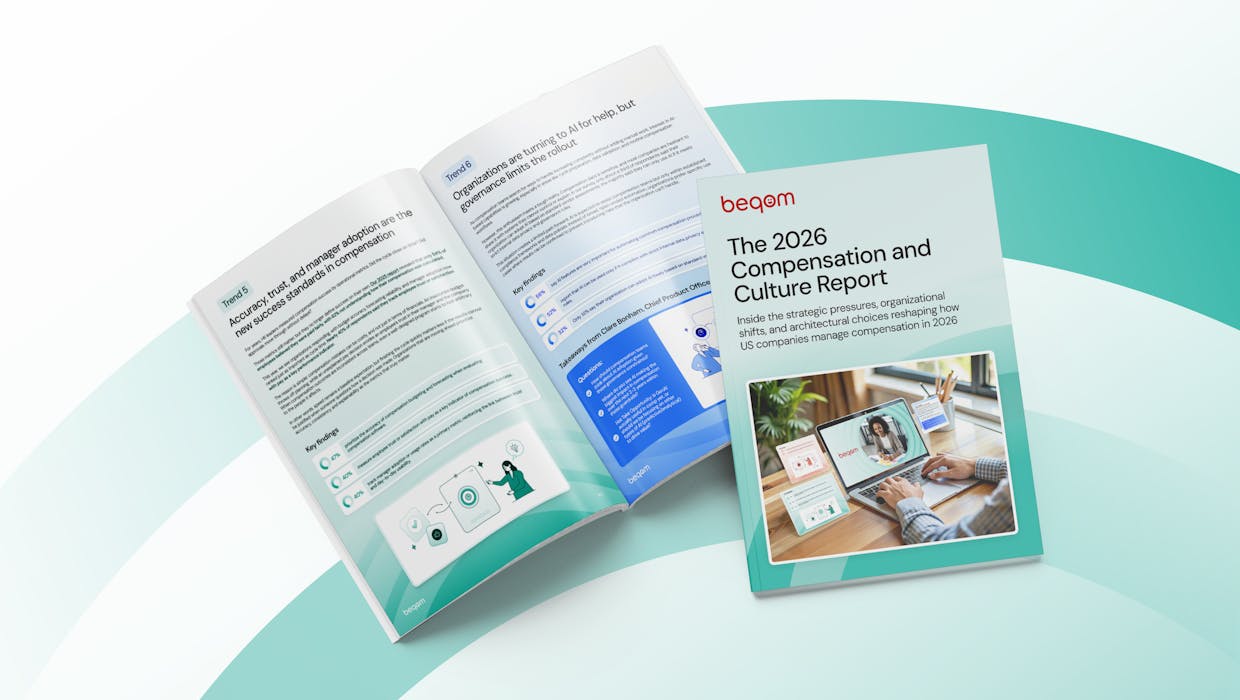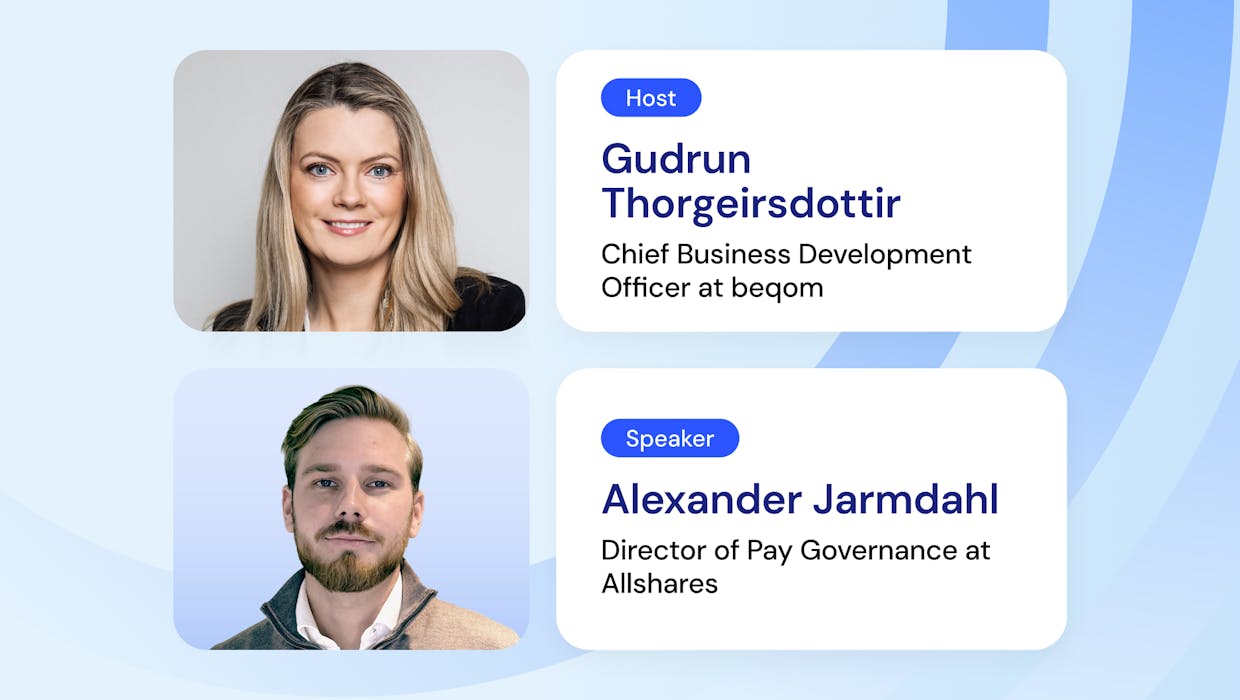Making Employees Happy through Recognition

Learn more about the following beqom products
March 4th was Employee Appreciation Day, and some chose to recognize employees throughout the month of March. But does a pat on the back really make all that much difference? What would? Can it be repeated and scaled?
A lot of companies can’t answer these questions, and struggle to find the best way to show their appreciation—or just don't get around to it. Why and how can you leverage recognition recognition to make for an inspiring and productive workplace?
We have long said that compensation is far from the only thing that motivates employees. At beqom, we believe that happiness is the best driver for success because happy people lead to better performance. But happiness doesn’t come from paying your employees more money. It comes from making sure they understand:
- The company direction
- Their individual goals and how they relate to the company's direction
- How they are rewarded and recognized for achieving these goals, and
- If the rewards are fair.
A compensation and performance platform should be able to provide this level of understanding to employees regarding their performance and pay, but that recognition layer is important as well. (The illustration above shows beqom’s CEO handing out Swiss watches to our 10-year employees.)
The deep need for recognition
Employees are humans and humans like to be acknowledged. Yet it is sometimes surprising how stingy we humans can be with our acknowledgment of others, given that it costs nothing and takes so little time.
An article in Psychology Today notes that for the majority of people “wishing to be explicitly recognized for what you do relates to the fact that validation from others just feels good. Reaching all the way back to childhood and your need for your parents’ reassurance and approval, being acknowledged by others helps you feel more accepted and secure.” If it’s such a deep-seated need, it only makes sense that it would be a strong motivator. Yet often people, including employers, peers, and managers, withhold praise.
The PT article posited reasons that a person might hesitate to acknowledge another:
- they themselves are recognition-deprived
- they are competitive and praising another might make them feel diminished
- they feel the accomplishments of the person were to be expected and therefore undeserving of recognition
- they think the recognition will unnecessarily feed the person’s ego
- they’re in denial about their own unmet need for acknowledgment; or,
- they have a strong sense of entitlement and take recognition for granted.
Ouch.
None of those reasons are very flattering to the person who is withholding the acknowledgment. In a business setting, it may have more to do with the corporate culture. Every business has a culture, whether it is spoken or unspoken, intentional or unintentional. If a culture of recognition is not consciously nurtured by management and HR, the culture may default to the typical command and control model. Perhaps it boils down to a background fear that if we acknowledge an employee they will (a) not strive to do better or (b) ask for more money or a promotion.
Research suggests that a scarcity mentality around recognition is counterproductive.
According to O.C. Tanner’s 2022 Global Culture Survey, when you show employees they are valued, “you increase employee engagement, boost employee morale, become an even greater place to work, and build a company culture where employees thrive. When employees feel appreciated, there is an 84% decrease in the chance they will experience burnout.”
The report finds that “When companies celebrate together, employees are 20x more likely to feel connected and want to stay.” Research shows that acts of courtesy, helping, and praise are predictive of productivity, efficiency, and lower turnover rates.
What form should recognition take?
According to a survey by Aon Hewitt and OCT, 46% of employers responded that both monetary and non-monetary awards are equally effective; 43% believed monetary awards are more effective than non-monetary awards, and 12% reported that non-monetary awards are of greater value. The survey found that the most popular vehicle is a thank-you from peers or managers (74%). Next was public recognition by senior management (66%), followed by gifts/merchandise (64%) and trophies and symbolic awards (55%).
Compensation is recognition too
For most workers, compensation provides the means to pay the bills and improve the standard of living for themselves and their families. It’s tied to survival and aspirations, making it a powerful motivator and sensitive topic. But an often overlooked aspect of compensation is that it serves as a proxy for recognition and acknowledgment. It is a way of expressing the employer’s opinion of the value of the employee. In that light, compensation is also related to the need for recognition and acknowledgment.
People want to produce work they are proud of and be recognized for it. Both compensation and other forms of recognition can serve that end. In the final analysis, employee satisfaction is linked to knowing what contribution they made and having that contribution recognized. Manage compensation well, but don’t be stingy with recognition. It can transform your workforce! And by the way, employee recognition software can help!







